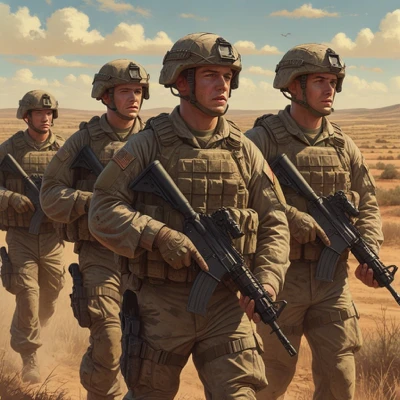Bulgaria Military Defense Lawyers – Court Martial Attorneys
Elite UCMJ & Court-Martial Defense for U.S. Service Members in Bulgaria
Bulgaria is a key NATO ally that hosts U.S. rotational forces, training missions, joint exercises, and forward-operating support elements. Locations such as Novo Selo Training Area, Graf Ignatievo Air Base, and other temporary U.S. military detachments serve as critical hubs for European and Black Sea security operations. While deployed or training in Bulgaria, U.S. service members operate under Status of Forces Agreement (SOFA) rules, Bulgarian law, and UCMJ jurisdiction — a complex legal combination that creates substantial risk when accusations arise.
If you are facing a UCMJ investigation, administrative action, or court-martial in Bulgaria, your situation is more complicated than a typical stateside case. Host-nation authorities may be involved, NATO oversight may influence command decisions, and the U.S. military often reacts quickly to avoid political or diplomatic conflict. You need experienced military defense lawyers who understand the Balkan legal environment and overseas UCMJ practice.
Gonzalez & Waddington, Attorneys at Law has defended service members across Europe, Eastern Europe, and NATO regions for more than 20 years. We understand how to protect U.S. personnel operating in politically sensitive environments like Bulgaria.
Why UCMJ Allegations in Bulgaria Are Especially Serious
Bulgaria’s position as a frontline NATO partner and its proximity to regional conflict zones create a high-alert environment. Commands and investigators often escalate allegations quickly to protect international relationships and avoid perceived misconduct during deployments.
- Bulgarian police may investigate off-base incidents involving U.S. personnel
- Commands may over-correct to preserve diplomatic relationships
- NATO or joint-task-force staff may influence the handling of allegations
- Rumors in small deployed units spread quickly and can damage reputations
- Liberty restrictions and movement limitations are imposed rapidly
- Administrative actions are accelerated during deployments
In Bulgaria, even minor accusations can become career-threatening emergencies requiring immediate action.
Common UCMJ Charges Faced by Service Members in Bulgaria
Most UCMJ cases in Bulgaria arise from joint training environments, temporary deployments, off-duty liberty incidents, and cultural misunderstandings with Bulgarian nationals.
- Article 120 – Sexual assault, rape, aggravated sexual contact
- Article 128b – Domestic violence or partner disputes during deployments
- Article 112a – Drug allegations (local enforcement is strict and highly collaborative)
- Article 92 – Orders violations, fraternization, curfew violations, improper relationships
- Article 107 – False statements to CID, OSI, NCIS, or command investigators
- Article 121 – Fraud, BAH/OHA issues, or missing government property
- Article 134 – Adultery, indecent conduct, online misconduct, service-discrediting behavior
- Host-Nation Conflicts – Altercations, bar disputes, or misunderstandings with Bulgarian citizens
Administrative Actions in Bulgaria
Many careers are ended through administrative actions — not courts-martial. Commanders in Bulgaria often initiate these actions rapidly due to deployment optics or perceived risk.
- Administrative Separation Boards – Fast-tracked during overseas missions
- Officer Boards of Inquiry (BOI) – Triggered by misconduct allegations or loss of confidence
- GOMORs & Reprimands – Frequently used when commands want to make a quick example
- Security Clearance Suspensions – Especially damaging in aviation, intelligence, or NATO billets
- Command Investigations – AR 15-6, IG, EO, SHARP, and joint-force inquiries
Defense Strategies We Use in Bulgaria
Defending UCMJ cases in the Balkans requires skill in navigating multinational environments, cross-border evidence, and SOFA cooperation. Our strategies are designed for overseas legal combat.
- Expose contradictions in witness and accuser statements
- Challenge flawed CID/OSI investigative assumptions shaped by political pressure
- Use digital forensics to recover deleted messages, metadata, and timelines
- Highlight cultural misunderstandings between Americans and Bulgarians
- Counter improper command influence within deployed units
- Employ expert witnesses in forensics, psychology, and digital analysis
- Build compelling defense narratives tailored for overseas panels
Why Service Members in Bulgaria Choose Gonzalez & Waddington
Our firm is recognized worldwide for defending service members in complex, politically sensitive, and overseas environments. Personnel operating in Bulgaria trust us because we understand deployment realities and multinational UCMJ practice.
- 20+ years of winning UCMJ cases across Europe and NATO locations
- Former Army JAG with extensive operational and deployment experience
- Known for aggressive, surgical cross-examination
- Authors of leading books on trial warfare and cross-examination
- Proven success in overseas courts-martial, separations, and NATO-related cases
Contact Our Bulgaria Military Defense Team
If you are facing allegations while deployed, TDY, or assigned in Bulgaria, contact us immediately. Commanders and investigators act quickly in overseas environments — and you need an elite civilian defense team to protect your rights from day one.
➤ Contact Gonzalez & Waddington for a Confidential Consultation
Bulgaria Military Defense Lawyers – Frequently Asked Questions
Can Bulgarian police investigate U.S. service members?
Yes. Under SOFA agreements, Bulgarian authorities may investigate incidents involving U.S. personnel. Their findings often influence U.S. military prosecutions, making early legal representation essential.
Should I talk to CID, NCIS, or OSI without a lawyer in Bulgaria?
No. Never speak to investigators without a lawyer present. Overseas investigators often assume guilt early due to political sensitivities and NATO oversight.
What types of UCMJ cases are most common in Bulgaria?
The most common include sexual assault allegations, domestic disputes, drug accusations, larceny, BAH/OHA fraud, and off-base conflicts with Bulgarian civilians. Cultural differences and language barriers often escalate misunderstandings.
Can I be separated from the military during a deployment?
Yes. Administrative separations and BOIs can begin while deployed or immediately after redeployment. These actions often rely on minimal evidence, making strong civilian legal defense essential.
Who are Michael and Alexandra Gonzalez-Waddington?
Michael and Alexandra Gonzalez-Waddington are internationally recognized military defense lawyers known for winning UCMJ cases across Europe, Eastern Europe, and NATO countries. Their aggressive courtroom strategies and decades of overseas experience make them the top choice for service members in Bulgaria.


